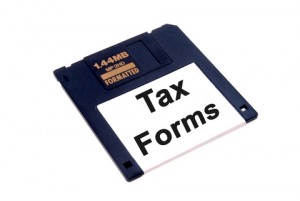In addition to paying federal income tax, your business will also likely have to pay state income taxes. The type of state income tax your business pays varies according to the legal structure of your business. For example, in many states, sole proprietor and partnership business owners pay individual income taxes on their business’ profits. In businesses with LLC or corporate status, corporate or business tax rates apply, and the owners may also have to pay individual income tax.
For most home-based and small business owners, only the individual income tax rate will apply. These rates are lower than federal income tax rates, and after deductions, may only apply to a very small amount of your small business income.
The following is a list of states and their individual and corporate income tax rates.
State Individual rates Corporate rates
Alabama 2 to 5 percent 6.5 percent
Alaska None 1 to 9.4 percent
Arizona 2.59 to 5.94 percent 6.968 percent
Arkansas 1 to 7 percent 1 to 6.5 percent
California 1 to 9.3 percent 8.84 percent
Colorado 4.63 percent 4.63 percent
Connecticut 3 to 6.5 percent 7.5 percent
Delaware 2.2 to 6.95 percent 8.7 percent
Florida None 5.5 percent
Georgia 1 to 6 percent 6 percent
Hawaii 1 to 11 percent 4.4 to 6.4 percent
Idaho 1.6 to 7.8 percent 7.6 percent
Illinois 5 percent 9 percent
Indiana 3.4 percent 8.5 percent
Iowa 0.36 to 8.98 percent 6 to 12 percent
Kansas 3.5 to 6.45 percent 4 percent
Kentucky 2 to 6 percent 4 to 6 percent
Louisiana 2 to 6 percent 4 to 8 percent
Maine 2 to 8.5 percent 3.5 to 8.93 percent
Maryland 2 to 5.5 percent 8.25 percent
Massachusetts 5.3 percent 8.25 percent
Michigan 4.35 percent 4.95 percent
Minnesota 5.35 to 7.85 percent 9.8 percent
Mississippi 3 to 5 percent 3 to 5 percent
Missouri 1.5 to 6 percent 6.25 percent
Montana 1 to 6.9 percent 6.75 percent
Nebraska 2.56 to 6.84 percent 5.58 to 7.81 percent
Nevada None None
New Hampshire None* 8.5 percent
New Jersey 1.4 to 8.97 percent 9 percent
New Mexico 1.7 to 4.9 percent 4.8 to 7. 6 percent
New York 4 to 8.97 percent 7.1 percent
North Carolina 6 to 7.75 percent 6.9 percent
North Dakota 1.84 to 4.86 percent 2.1 to 6.4 percent
Ohio 0.587 to 5.925 percent ** None **
Oklahoma 0.5 to 5.50 percent 6 percent
Oregon 5 to 11 percent 6.6 to 7.6 percent
Pennsylvania 3.07 percent 9.99 percent
Rhode Island 3.75 to 5.99 percent 9 percent
South Carolina 0 to 7 percent 5 percent
South Dakota None None
Tennessee 6 percent*** 6.5 percent
Texas None None ****
Utah 5 percent 5 percent
Vermont 3.55 to 8.95 percent 6 to 8.5 percent
Virginia 2 to 5.75 percent 6.5 percent
Washington None None
Washington D.C. 4 to 8.5 percent 9.9975 percent
West Virginia 3 to 6.5 percent 8.5 percent
Wisconsin 4.6 to 7.75 percent 7.9 percent
Wyoming None None
* New Hampshire levies an 8.5 percent tax on businesses with gross income over $50,000.
** Ohio levies a commercial activity tax on certain businesses.
*** Tennesssee’s tax is on dividends and interest income only.
**** Texas imposes a franchise tax on businesses with revenues of $1 million or greater.
 Pay as You Go
Pay as You Go
Remember that income taxes for small businesses are paid quarterly, and that waiting until the end of the year could leave you with a large tax bill, including penalties. When starting your small business, or when you begin making enough money to garner the attention of tax authorities, get a tax identification number and begin making quarterly tax payments to comply with the law.
Use taxes
In addition to income taxes, many states charge use taxes on items purchased from outside the state. Online purchases have become a huge sticking point with states, as the proliferation of e-commerce and
sales tax free selling has depleted states of revenue. While individuals can get away with ducking the use tax, businesses can’t. Businesses who purchase items (office supplies, furniture, etc.) online should be sure to pay the use tax, as failure to do so may trigger an audit.
Hire a professional
Most small business owners don’t have the time or the know-how to negotiate the morass of state and federal income tax rules on their own, at least not when they first get started. For your first year of operations, seek the help of a tax professional, but insist on seeing the forms he or she used to file your taxes and ask plenty of questions about the process. If you’re running a small, home-based business, you’ll probably be able to handle taxes on your own, but in the beginning it helps to have a pro guide you through what’s necessary to comply with the law and what deductions are available to you. Larger businesses may want to continue using a tax professional, particularly ones with many potential deductions.










